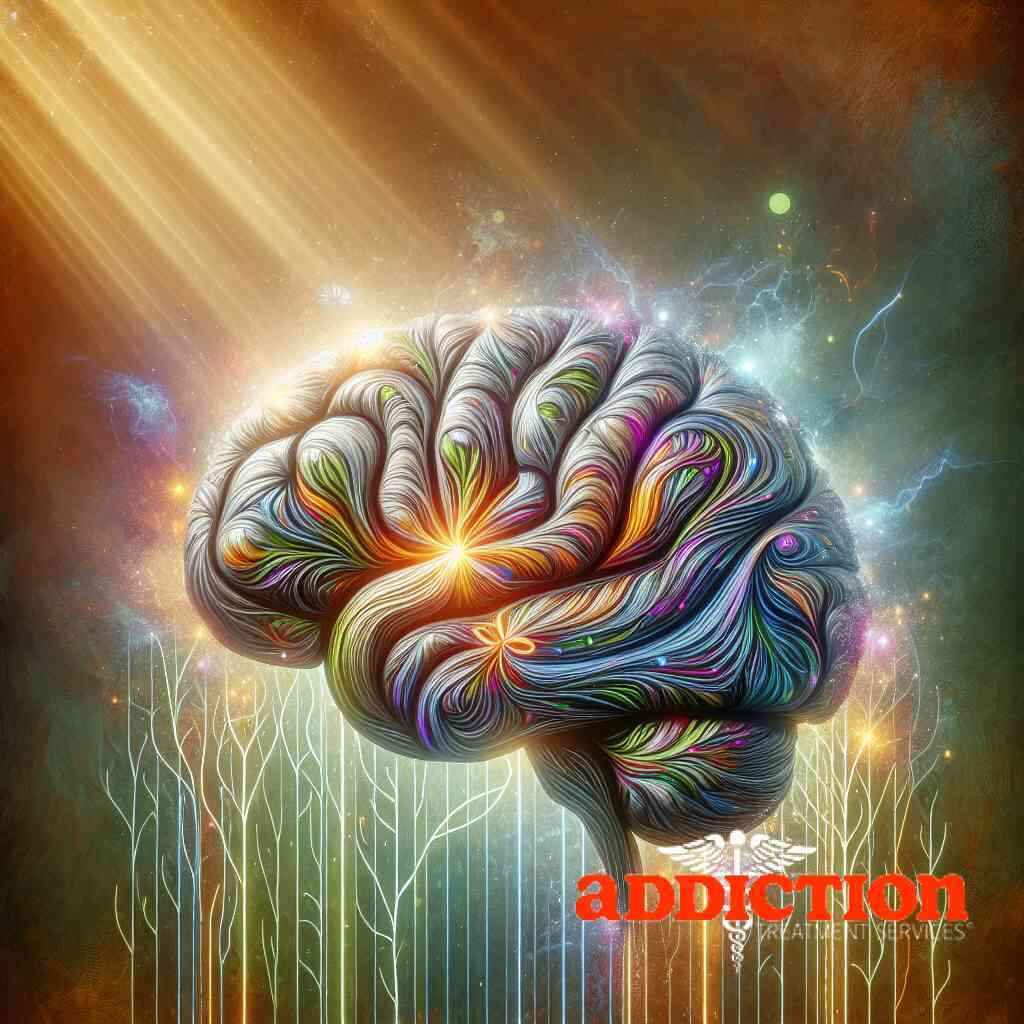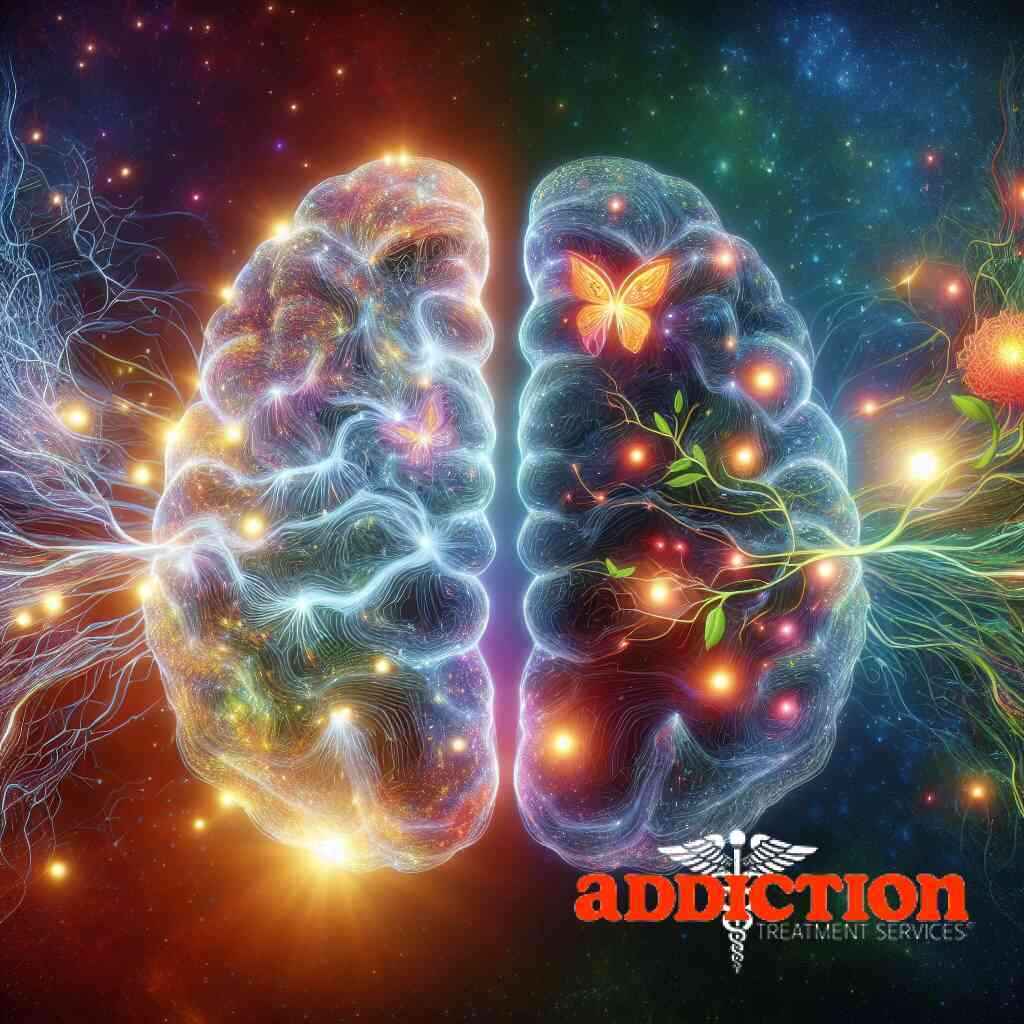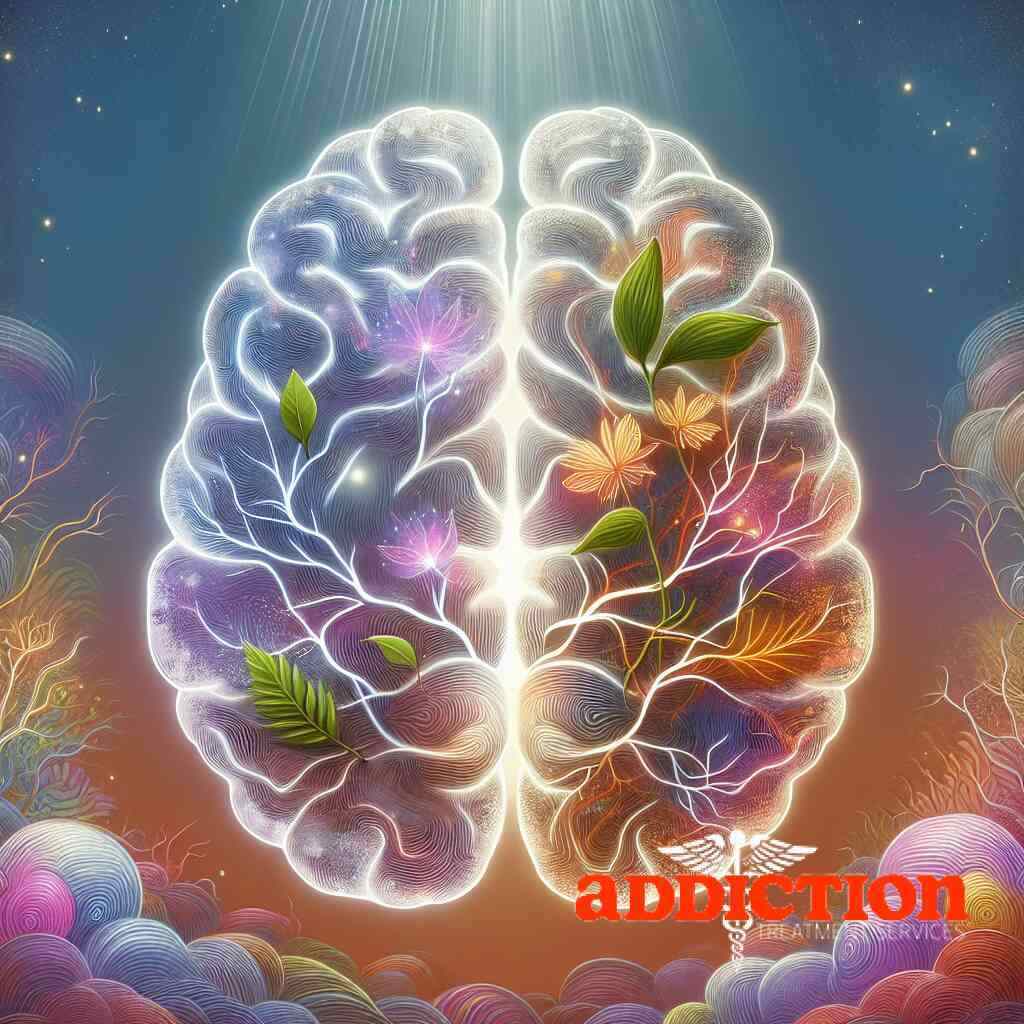 Posted On: 06/14/2024
Posted On: 06/14/2024Unlocking the Mysteries of Addiction
Neurobiology of Addiction
The journey to understanding addiction begins with an exploration of its neurobiology. At the core, addiction is a deeply rooted neurological condition that arises from the brain’s complex reward and regulation systems. This complex interplay involves various neurotransmitters, neural pathways, and the brain’s innate ability to respond to environmental cues and experiences. Dopamine, often referred to as the ‘feel-good’ neurotransmitter, plays a critical role in the development of addiction. It’s released in larger-than-normal amounts during drug use or other addictive behaviors, reinforcing the action and making the experience more pleasurable and desirable.
Understanding the Brain and Addiction
To fully grasp how addiction seizes control, it’s essential to understand the integral role the brain plays. Addiction intricately alters the brain’s normal functions, especially in areas involved in reward, motivation, learning, and memory. The brain is wired to repeat pleasurable experiences, a fundamental principle that drugs and addictive behaviors exploit. Over time, the brain adjusts to the excess dopamine caused by these substances or behaviors, leading to changes in neural circuits and diminishing the brain’s natural reward system. This fundamental alteration in brain chemistry compels the person to continue seeking drugs or addictive behaviors at the expense of other healthier activities.
How Addiction Alters Brain Function
The alteration of brain function due to addiction is profound and multifaceted. At the forefront, there’s a significant impact on the brain’s reward system, which results in the addictive substance or behavior becoming the main source of pleasure, often overshadowing and eventually replacing all other activities in the individual’s life. The psychological impact of addiction extends further into cognitive areas, affecting decision-making, impulse control, and the ability to resist urges. Chronic exposure to addictive substances leads to neuroadaptations in the brain’s reward circuitry, which challenge an individual’s self-control and hamper their ability to abstain from the addictive substance or behavior. Furthermore, addiction can cause long-term changes in the brain, which may persist even after the individual stops using the substance or engaging in the behavior, underlining the chronic nature of the disorder and highlighting the importance of targeted treatment strategies to restore normal brain function and promote recovery.
The Brain’s Reward System and Its Role in Addiction
The brain’s reward system plays a pivotal role in the development and perpetuation of addiction. This intricate neural network, evolved to reinforce behaviors essential for survival, such as eating and reproduction, has unfortunately become a target for addictive substances and behaviors. By hijacking this fundamental system, drugs and addictive behaviors artificially stimulate reward pathways, leading to the compulsive pursuit of these activities despite adverse consequences.
Dopamine and Addiction
Dopamine is often at the center of discussions about addiction. This neurotransmitter, crucial for the brain’s reward circuit, signals pleasure and motivates behaviors. When an individual engages in activities that release dopamine, such as taking drugs or consuming alcohol, the brain is flooded with this “feel-good” chemical, creating a high that users often seek to replicate. Over time, the brain’s natural ability to produce and regulate dopamine is impaired, leading to a diminished capacity to experience pleasure from normal activities. This dysregulation of dopamine not only fuels the cycle of addiction but also makes recovery a challenging process, as the brain must adjust to lower levels of stimulation.
Mesolimbic Pathway Addiction
The mesolimbic pathway, a key component of the reward system, is often referred to as the brain’s “pleasure pathway.” Originating in the ventral tegmental area and extending to the nucleus accumbens – regions deeply embedded in the brain’s limbic system – this pathway plays a critical role in the experience of pleasure and the reinforcement of addictive behaviors. Activation of the mesolimbic pathway by addictive substances leads to the increased release of dopamine, reinforcing the desire to continue using the substance. As addiction progresses, the mesolimbic pathway becomes increasingly sensitive to the substance or behavior, while simultaneously becoming less responsive to natural rewards, such as food or social interactions.
Neurotransmitters and Addiction
While dopamine is the star of the show, it is not the only neurotransmitter involved in addiction. Glutamate, GABA, serotonin, and norepinephrine also play significant roles. Glutamate, for example, is responsible for the brain’s ability to learn and adapt – processes that are hijacked during the development of addiction. On the other hand, GABA (gamma-aminobutyric acid), the brain’s main inhibitory neurotransmitter, can modulate the intensity of the dopamine reward signal, and alterations in GABA pathways can exacerbate the compulsive nature of addiction. Serotonin and norepinephrine, while less directly involved in the brain’s reward system, influence mood and stress responses, factors that can contribute to the onset and continuation of addictive behaviors. Understanding the complex roles these neurotransmitters play in addiction is crucial for developing effective treatment strategies that address the neurological aspects of substance use disorders. As we continue to explore and develop addiction treatment services, a detailed comprehension of the neurochemical underpinnings of addiction will be paramount in crafting interventions that can effectively restore brain chemistry and promote long-term recovery.
Critical Brain Regions Involved in Addiction
Prefrontal Cortex Addiction
The prefrontal cortex, a key player in decision-making, impulse control, and self-regulation, is significantly impacted by addiction. This area of the brain is responsible for assessing situations, making rational decisions, and controlling impulses and emotions. When addiction enters the picture, the normal functioning of the prefrontal cortex is disrupted, leading to impaired judgment and a decrease in the ability to resist urges, making abstaining from the addictive substance or behavior increasingly challenging. The alterations in this brain region contribute to the compulsive nature of addiction, where the pursuit of short-term rewards (i.e., substance use) outweighs consideration for long-term consequences. This shift in control can exacerbate the cycle of addiction, as individuals struggle with the decreased capacity to control their substance use or addictive behaviors.
Amygdala Addiction
The amygdala, part of the brain’s limbic system, plays a crucial role in processing emotions, stress responses, and the formation of emotional memories associated with drug use or addictive behaviors. When addiction is present, the amygdala becomes overly sensitive to stress and the cues associated with substance use, often triggering intense cravings and emotional responses that drive addictive behaviors. This heightened sensitivity can make recovery challenging, as exposure to stress or environmental cues can increase the risk of relapse. The amygdala’s adaptation to addiction underscores the importance of addressing both the psychological and environmental aspects of addiction in treatment, emphasizing strategies for coping with stress and avoiding triggers as pivotal components of successful recovery.
Brain Regions and Addiction
Addiction’s impact extends beyond the prefrontal cortex and amygdala, involving multiple brain regions that form an intricate network governing motivation, reward, memory, and decision-making. The nucleus accumbens, hippocampus, and cerebellum, among others, all play integral roles in the development and persistence of addiction. Each region contributes to the complex nature of addiction, from the initial sensation of pleasure and reward to the formation of habituated responses and craving triggers. Understanding the composite contributions of these areas is fundamental in addressing addiction comprehensively. Treatments that focus on rebalancing brain chemistry, rewiring neural pathways, and restoring normal brain function are critical in helping individuals overcome addiction. Tailored approaches, including medication-assisted treatment, behavior modification, and supportive therapies, are designed to address the specific ways in which these brain regions are affected, aiming to facilitate a holistic recovery process. Engaging in addiction treatment services that understand the neurobiological underpinnings of addiction can significantly enhance the recovery journey, offering hope and practical strategies for individuals seeking to reclaim control over their lives.
How Substance Abuse Affects the Brain
Substance abuse profoundly impacts the brain, altering its structure and how it functions. When substances like alcohol, drugs, or nicotine enter the system, the immediate short-term effects can include changes in perception, mood, consciousness, and behavior. However, the long-term consequences of substance abuse extend far deeper, affecting the brain’s very fabric and potentially leading to lasting harm.
Substance Abuse Brain Effects
The brain is remarkably plastic, meaning it can change and adapt in response to experiences, including the use of substances. Psychoactive drugs, for example, can temporarily or permanently alter the brain’s chemical balance and neurotransmitter systems, which are crucial for sending and receiving messages. Regular exposure to these substances can cause the brain to rely on the drug to maintain a sense of normalcy, a phenomenon known as dependence. Over time, this dependence can develop into addiction, a chronic brain disorder characterized by the compulsive use of drugs despite harmful consequences. The psychoactive drug impact on the brain is extensive, affecting not only the reward system but also regions involved in decision-making, stress response, and memory.
Addiction and Brain Damage
Prolonged substance abuse can lead to significant brain damage, affecting cognitive functions such as memory, attention, and decision-making. Drugs like methamphetamine and cocaine can cause direct neurotoxic effects, damaging brain cells and leading to structural and functional brain changes. Alcohol abuse can lead to conditions like Wernicke-Korsakoff syndrome, a severe brain disorder resulting from vitamin B1 deficiency, which can cause memory loss, confusion, and motor function impairment. The drug addiction treatment act of 2000 explained how legislation began addressing the medical treatment of substance use disorders, underscoring the recognition of addiction as a complex brain disorder requiring comprehensive treatment approaches.
Behavioral Addiction Brain
Not all addictions involve substance abuse. Behavioral addictions, such as gambling, sex, or internet addiction, also activate the brain’s reward system but do not involve the consumption of psychoactive substances. Yet, the brain effects are remarkably similar. Engaging in these behaviors stimulates the release of dopamine, reinforcing the behavior and creating a cycle of addiction. Over time, the brain requires more of the behavior to achieve the same level of pleasure or escape, leading to patterns consistent with those seen in substance abuse. Research into the neurobiology of addiction reveals that despite the type of addiction, similar neural pathways are involved, suggesting that the mechanics of addiction are deeply ingrained in how the brain processes pleasure and reward.
Substance abuse and addiction represent complex challenges with significant impacts on the brain. Understanding these effects is crucial for developing effective treatments and supporting the recovery process. By bridging the gap between neuroscience and addiction treatment services, professionals can offer more targeted, evidence-based approaches to help individuals rebuild their lives and heal from the damage caused by addiction.
Recovery and Rehabilitation: Healing the Addicted Brain
Addiction recovery brain healing
The path to recovery from addiction is a journey of both physical and psychological healing. The brain, remarkably resilient, possesses an innate capacity for recovery and regeneration. Through comprehensive addiction recovery programs in California and across the nation, individuals embark on a healing process that not only targets the symptoms of substance abuse but also addresses the underlying neural pathways influenced by addiction. Recovery strategies often incorporate behavioral therapy, medication-assisted treatment, and support group participation, all aimed at restoring the brain’s natural chemistry and function. Research has shown that with sustained sobriety, the brain begins to recover from the damage caused by addiction, improving cognitive functions such as memory, attention, and decision-making. This addiction recovery process is a testament to the brain’s remarkable ability to heal, given the right environment and support.
Brain plasticity addiction
Neural plasticity, or the brain’s ability to change and adapt as a result of experience, is a cornerstone of addiction recovery. Plasticity allows the brain to rewire itself, forming new, healthy neural connections in place of those that were previously dominated by addictive behaviors. Treatment programs focused on leveraging this aspect of brain function often involve activities and therapies designed to stimulate brain regions associated with motivation, reward, and self-regulation. Cognitive-behavioral therapy (CBT), mindfulness-based interventions, and physical exercise are just a few examples that can promote neural plasticity, aiding in the recovery from addiction. These approaches help individuals develop new coping mechanisms and behavioral patterns that support sobriety and overall well-being. Engaging in new learning experiences and social interactions also plays a critical role in fostering brain plasticity and facilitating the repair and growth of neural circuits damaged by long-term substance abuse.
Brain rehabilitation after addiction
The rehabilitation of the brain following the grip of addiction is a multifaceted process that includes medical, psychological, and social interventions. Treatment centers across the country, from inpatient facilities to intensive outpatient programs, are equipped with the tools and expertise necessary to support individuals through this challenging but rewarding journey. Rehabilitation efforts may include detoxification services to manage withdrawal symptoms, psychotherapy for addiction to address mental health conditions and behavioral issues, and medication-assisted treatment to restore chemical imbalances in the brain. Additionally, therapeutic communities and sober living environments offer ongoing support and accountability, essential for maintaining the gains achieved during treatment. Through a comprehensive and integrated approach to brain rehabilitation, individuals can rebuild their lives, restoring not only their neurological health but also their sense of purpose, social connections, and overall quality of life. Reintegration into society with a renewed focus on personal growth and resilience underscores the profound impact of effective addiction treatment and the incredible capacity of the human brain to heal and transform.
Treatment Programs and Their Approach to Neurological Healing
Detoxification Services
Detoxification services stand as the foundational step in the journey towards recovery for many individuals grappling with addiction. This process involves systematically and safely withdrawing from addictive substances under medical supervision, providing a basis for sustained rehabilitation. Given the profound changes in brain chemistry and function associated with substance abuse, detoxification is a critical initial step in restoring balance and facilitating subsequent interventions. It aims to mitigate the signs of withdrawal symptoms and help manage the physical and psychological challenges that often accompany the cessation of substance use. Effective detox services are characterized by their ability to adapt to the unique needs of each individual, incorporating both medical and supportive care to ensure safety and comfort throughout the process.
Medication-Assisted Treatment
Medication-assisted treatment (MAT) represents a pivotal component of modern addiction care, blending pharmacological interventions with behavioral therapies to address the complex nature of substance use disorders. MAT specifically targets the alterations in brain chemistry and function resulting from addiction, using medications to stabilize brain chemistry, block the euphoric effects of alcohol and drugs, relieve physiological cravings, and normalize body functions. This approach is especially crucial for opioids, where medications like naltrexone, methadone, and buprenorphine can significantly enhance recovery outcomes. By addressing the neurobiological underpinnings of addiction, MAT offers a more comprehensive treatment model that can improve patient engagement, reduce the likelihood of relapse, and support long-term recovery.
Intensive Outpatient Program
Intensive Outpatient Programs (IOPs) provide a flexible yet structured treatment option for individuals transitioning from higher levels of care or those requiring substantial support without the need for residential treatment. Programs like the Delray Beach Intensive Outpatient Program offer tailored therapeutic modalities designed to address the neurological and behavioral aspects of addiction. Clients participate in multiple therapy sessions weekly, which may include group, individual, and family sessions, along with education on relapse prevention strategies. IOPs actively engage participants in real-world environments, offering a balance between treatment and life responsibilities, thereby facilitating an integrated approach to recovery that reinforces newly developed coping strategies and neurocognitive skills essential for long-term sobriety.
Behavioral Health Services
Behavioral health services encompass a broad spectrum of psychological and social support services integral to addiction treatment and rehabilitation. These services target the cognitive, emotional, and behavioral dimensions of addiction, focusing on altering maladaptive patterns of thought and behavior that contribute to substance abuse. Therapies such as cognitive-behavioral therapy (CBT), motivational interviewing, and dialectical behavior therapy (DBT) are employed to enhance emotional regulation, improve impulse control, and bolster cognitive control over addiction triggers. Through these interventions, behavioral health services aim to rectify the disrupted neural pathways and brain function associated with addiction, laying the groundwork for sustained recovery and improved mental health. Additionally, these services provide vital support for co-occurring disorders, addressing the intertwined nature of substance use and mental health conditions in a holistic manner.
The Psychological Aspect of Addiction and Its Treatment
Emotional Regulation and Addiction
Emotional regulation plays a pivotal role in the susceptibility to and recovery from addiction. Individuals often turn to substances or addictive behaviors as a means to cope with negative emotions or stressful situations. This maladaptive form of emotional self-management can lead to a vicious cycle where the brain’s natural ability to regulate emotions is compromised, further increasing dependency on external substances to feel balanced or numb. Therapy focused on emotional regulation seeks to equip individuals with healthier coping mechanisms, enabling them to handle life’s ups and downs without reverting to destructive habits. The process of relearning emotional regulation is a cornerstone in psychotherapy for addiction, highlighting the intricate relationship between our emotional wellbeing and addiction recovery.
Cognitive Control and Addiction
The loss of cognitive control is a hallmark of addiction, where the immediate gratification provided by substances or behaviors overrides the brain’s executive functions related to decision-making and impulse control. Addiction alters the brain’s frontal lobe, impairing cognitive control and judgment. Restoring this control is critical, as it allows individuals to make conscious choices about their recovery, rather than being driven by addiction-induced impulses. Through structured treatment programs, individuals can engage in exercises and therapies designed to strengthen their cognitive function, fostering a regained sense of control over their actions and decisions. Strengthening cognitive control is essential for managing cravings and navigating the complex journey of recovery.
Impulse Control and Addiction
Closely related to cognitive control, impulse control is significantly undermined by addiction. The instant gratification from drug use or engaging in addictive behaviors bypasses the brain’s natural reward pathways, creating a short circuit that leads to compulsive actions without due consideration for their consequences. Treatments that focus on impulse control aim to build delay and reflection into the decision-making process, allowing individuals to pause, consider the potential outcomes of their actions, and choose healthier alternatives. Modalities such as Cognitive Behavioral Therapy (CBT) are particularly effective in enhancing impulse control, teaching strategies for delaying gratification, and resisting the urge to engage in addictive behaviors. By improving impulse control, individuals gain a crucial tool in preventing relapse and sustaining long-term recovery.
Relapse Prevention
Relapse prevention is an integral component of addiction treatment, addressing the neurobiological, psychological, and situational factors that contribute to the cycle of addiction. Recognizing that relapse is often part of the recovery process, this approach incorporates strategies designed to identify and manage triggers, develop healthy coping mechanisms, and build a supportive environment conducive to recovery. Effective relapse prevention plans are tailored to the individual, considering their unique challenges and the specific nature of their addiction. By combining knowledge of the brain’s role in addiction with practical, evidence-based strategies, relapse prevention programs empower individuals to maintain their sobriety over the long term. Participation in AA meetings for support can also offer additional resources and a community of peers who understand the journey, providing encouragement and sharing techniques that have worked for others navigating similar paths.
Innovative Therapies and Emerging Research in Addiction Treatment
Early Intervention and Neuroscience
The increasing intersection between neuroscience and addiction treatment has underscored the importance of early intervention in curbing the progression of substance use disorders. Emerging research suggests that the sooner individuals receive support and intervention, the higher their chances of a successful recovery. Early intervention programs are designed to identify and address risk factors for addiction before they escalate into more severe problems. These programs often leverage neurological insights, such as the understanding of how early exposure to substances can alter the developing brain, potentially setting a trajectory toward addiction. By focusing on the neural underpinnings of addictive behaviors, experts are developing more precise intervention strategies that can be implemented at critical stages of brain development. This proactive approach aims to mitigate the risk factors associated with addiction, fostering healthier developmental pathways and preventing the deep-rooted changes in brain function that characterize substance use disorders. If you think you or a loved one might benefit from such intervention, contact us for addiction help.
Recovery Support Services and Brain Function
The role of recovery support services in enhancing brain function during and after addiction treatment is becoming increasingly recognized. These services, which range from peer-led support groups to structured aftercare programs, offer continuous support that is crucial for long-term recovery. Research indicates that sustained engagement in recovery support services can lead to improvements in areas of the brain affected by addiction. For example, participation in programs offering social support and skills training can help in the normalization of brain function, particularly in regions involved in emotional regulation and impulse control. Moreover, ongoing recovery support can reinforce the neural pathways associated with positive behavioral changes, making them more resilient to the triggers of relapse. This reinforcement is critical, as it supports the brain’s plasticity, allowing it to rewire and heal from the damages wrought by substance abuse. These insights highlight the need for integrating recovery support services as a core component of addiction treatment plans, ensuring that individuals not only achieve sobriety but also regain and maintain optimal brain health.
Neuroadaptations and Innovative Treatment Strategies
Understanding the concept of neuroadaptations – the brain’s adaptive changes in response to repeated substance use – is central to developing innovative treatment strategies for addiction. These neuroadaptations can lead to an increased tolerance to substances, withdrawal symptoms upon cessation, and a heightened propensity for relapse, posing significant challenges in addiction treatment. However, this knowledge also opens up new avenues for therapeutic approaches that aim to reverse or mitigate these changes. Recent advances in addiction neuroscience have led to the exploration of novel treatment modalities, such as pharmacological agents targeting specific neurotransmitter systems affected by addictive substances, and neuromodulation techniques like transcranial magnetic stimulation (TMS). These innovative strategies are designed to restore the brain’s normal functioning by correcting the neurochemical imbalances and strengthening the neural circuits weakened by substance use. As research progresses, these treatments hold promise for more effective and personalized approaches to addiction care, ultimately improving outcomes for individuals grappling with the complex disease of addiction.
Journey Towards Recovery: Personalizing Addiction Treatment
Finding Addiction Treatment Services Near You
Identifying the right addiction treatment services tailored to your needs is an essential step towards recovery. The journey begins by seeking out resources that offer a compassionate understanding of addiction and its complexities. Addiction Treatment Services provides a robust directory, making it easier for you to find reputed addiction treatment centers across all 50 states. Whether you’re looking for local outpatient care or residential treatment facilities, the initial stage is to understand the availability of services near you that align with your specific recovery goals. Recognizing the diversity of substance use disorders, it’s vital to find a treatment facility that resonates with your personal circumstances, offering a nurturing environment conducive to healing.
Tailoring treatment to individual needs – a holistic approach
Addiction treatment is not a one-size-fits-all scenario. Every individual’s journey to recovery is unique, shaped by their personal experiences, addiction severity, co-occurring mental health disorders, and specific life circumstances. A holistic approach to addiction treatment considers all these factors, designing a personalized treatment plan that addresses not just the physical aspects of addiction, but also psychological, social, and spiritual needs. By choosing a rehab program that offers a range of therapeutic modalities, from detoxification services to behavioral therapy and relapse prevention strategies, individuals can embark on a path to recovery that truly resonates with their individual needs. Ensuring the inclusion of family support, life skills training, and aftercare planning further tailors the recovery process, paving the way for a successful journey towards sobriety.
Addiction Treatment Services Blog – Success stories and insights
The Addiction Treatment Services Blog serves as a beacon of hope, offering success stories, insights, and valuable information for those navigating the complex landscape of addiction and recovery. By sharing real-life stories of recovery, the blog provides a source of inspiration and encouragement for individuals and family members embarking on their own journey to overcome substance use disorders. It also delivers actionable advice, latest research findings, and practical tips on choosing a rehab center in Pennsylvania guide and other regions, illuminating the path to finding effective treatment and support. These stories and insights underscore the possibility of healing and renewal, emphasizing the importance of perseverance, community support, and professional guidance in the recovery process.
Addiction Treatment Services Directory – Explore your options
The Addiction Treatment Services Directory is an essential tool for anyone seeking comprehensive information on addiction treatment options. This directory offers an extensive list of addiction treatment services near you, simplifying the process of finding the right program to meet your needs. From inpatient vs. residential treatment facilities comparison to specialized approaches for specific substances or co-occurring disorders, the directory provides detailed profiles of each treatment facility, including their programs, services, and areas of expertise. By exploring your options through the Addiction Treatment Services Directory, you can make an informed decision on the most suitable treatment path, equipped with knowledge on the latest and most effective rehabilitation methods available. This resource aims to empower you and your loved ones with the information needed to take the first step towards healing and recovery.
Embarking on a Path of Recovery: Conclusion

Recovery from addiction is a deeply personal journey that requires courage, commitment, and a network of support. As we have explored the intricacies of addiction and its effects on the brain, it is clear that overcoming substance use disorders is not just about abstaining from drugs or alcohol,it’s about healing the brain and reclaiming control over one’s life. In this concluding section, we reflect on the foundational pillars of a successful recovery journey: the importance of support, the ongoing nature of addiction neuroscience research, and the collective encouragement needed for individuals and their families.
The Importance of Support in Recovery
The path to recovery is often marred with challenges, making the support from peers, family, and professionals paramount. Support networks provide not just emotional backing but also practical assistance in navigating the complexities of treatment and rehabilitation. Engaging with recovery support services like sober living communities, AA Meetings, and NA Meetings can significantly bolster an individual’s ability to stay on track. These communities offer a sense of belonging and understanding, creating a safe space where individuals can share their experiences, achievements, and setbacks without fear of judgment. Furthermore, family and friends play a crucial role in offering love and encouragement, acting as a constant reminder of the life and relationships worth fighting for. It is through this collective support that individuals find the strength to continue their journey, even in the face of difficulties.
Continuous Research on Addiction Neuroscience
The landscape of addiction treatment is ever-evolving, driven by continual research into the neuroscience of addiction. Scientists and medical professionals tirelessly work to uncover new insights into how addiction alters the brain, striving to develop more effective, evidence-based treatment strategies. Studies on neuroplasticity, neurotransmitters, and brain circuitry related to addiction are paving the way for innovative therapies and interventions. The evolving understanding of drug rehabilitation methods is a beacon of hope, promising better outcomes for individuals grappling with substance use disorders. By staying abreast of the latest research, treatment programs can adapt and evolve, offering the most current and effective approaches to help individuals rebuild their lives.
Encouragement for Individuals and Family Members
Lastly, it’s essential to acknowledge the journey of recovery as a continuum, where progress and setbacks are part of the healing process. To individuals embarking on this path, know that your journey is unique, and every step forward is an achievement worth celebrating. The bravery in seeking help and the determination to pursue recovery are commendable acts of strength. To family members and friends, your unwavering support and understanding play a critical role in your loved one’s recovery. Your encouragement helps lighten the burden, making the challenging moments more bearable.
Recovery is not a solitary endeavor but a collective journey of hope, resilience, and renewal. Addiction Treatment Services stands with you, offering guidance, resources, and addiction treatment services near you to support you at every step. Together, we can navigate the challenges and embrace the triumphs, moving towards a future defined not by addiction, but by the possibility of a fulfilled, sober life.
Frequently Asked Questions
Question: How does understanding the neurobiology of addiction help in choosing the right addiction treatment services?
Answer: Understanding the neurobiology of addiction is foundational in identifying and selecting addiction treatment services that address both the psychological and physiological facets of substance use disorders. Addiction Treatment Services integrates the latest research in addiction neuroscience, including the role of dopamine and addiction, neuroadaptations, and the impact of substance abuse on brain effects, to offer tailored treatment programs. By considering how addiction alters brain function and brain chemistry, we can assist individuals in choosing therapies that focus on healing the brain, leveraging strategies like medication-assisted treatment, behavioral health services, and modalities that promote brain plasticity for recovery. This approach ensures a holistic recovery path that not only addresses symptoms but also the root causes of addiction, thereby enhancing the effectiveness of treatment and supporting long-term sobriety.
Question: In the blog post ‘What Part of the Brain Controls Addiction?’ It mentions the significance of the brain’s reward system. How do treatment programs at Addiction Treatment Services address this?
Answer: The brain’s reward system, particularly its manipulation by addictive substances, plays a pivotal role in the development and perpetuation of addiction. At Addiction Treatment Services, our network of treatment centers and programs is acutely aware of the importance of addressing the brain reward system in addiction recovery. Treatment modalities such as cognitive-behavioral therapy (CBT) and medication-assisted treatment (MAT) are employed to mitigate the altered reward circuitry by restoring normal dopamine function and reinforcing healthy neural pathways. Additionally, therapies aimed at enhancing cognitive control addiction and impulse control are integral parts of our programs, directly addressing disruptions in the prefrontal cortex and amygdala regions involved in addiction. By focusing on rewiring the brain’s response to rewards and developing new, healthier coping strategies, our services aim to rebuild the brain’s natural reward mechanisms and support sustainable recovery.
Question: How do addiction treatment centers within your services use knowledge on neurotransmitters and addiction in treatment planning?
Answer: Our addiction treatment centers integrate comprehensive understanding of how neurotransmitters like dopamine, glutamate, and serotonin contribute to the cycle of addiction into our treatment planning. By recognizing the role of neurotransmitters in addiction brain chemistry, our programs emphasize the importance of restoring neurochemical balance through a combination of pharmacological and therapeutic interventions. Medication-assisted treatment (MAT), for example, uses FDA-approved medications to normalize brain chemistry, reduce cravings, and alleviate withdrawal symptoms, directly addressing neurochemical imbalances. Additionally, therapies such as neurofeedback and cognitive-behavioral therapy (CBT) are designed to further address addiction and brain function by modifying brain activity and reinforcing positive behavioral changes. These integrated approaches ensure a more comprehensive treatment of substance use disorders, targeting the underlying neurological aspects to facilitate effective recovery and rehabilitation.
Question: Can you explain how Addiction Treatment Services support brain rehabilitation after addiction?
Answer: Rehabilitation of the brain following addiction is a multifaceted process that encompasses medical, psychological, and social interventions, all of which are central to the services provided by Addiction Treatment Services. Our approach to brain rehabilitation after addiction focuses on both the physical healing of the brain and the psychological recovery from substance use disorders. We utilize evidence-based treatment modalities such as behavioral health services, which include therapies that foster emotional regulation, cognitive control, and impulse control, directly addressing areas of the brain like the prefrontal cortex and amygdala that are impacted by addiction. Furthermore, our services support neuroplasticity and the brain’s natural ability to form new neural connections, enhancing recovery through activities that stimulate cognitive function and emotional wellness. By combining these strategies with continuous recovery support services, we aim to facilitate comprehensive healing, enabling individuals to reclaim their cognitive abilities and emotional resilience, pivotal for a successful long-term recovery.
Question: What emerging research in addiction treatment is being incorporated into the programs offered by Addiction Treatment Services?
Answer: Addiction Treatment Services is committed to incorporating the latest advancements in addiction neuroscience and treatment methodologies into our programs. Emerging research, particularly in the areas of neuroadaptations and innovative treatment strategies, is reshaping how we approach addiction recovery. We are exploring and implementing novel therapies such as transcranial magnetic stimulation (TMS) and pharmacological agents targeted at specific neurotransmitter systems to directly address the brain changes associated with addiction. Additionally, our programs emphasize early intervention and neuroplasticity, utilizing therapies designed to support the brain’s capacity to rewire itself and recover from the effects of substance use. By staying at the forefront of addiction treatment research, Addiction Treatment Services ensures that individuals receive the most effective, evidence-based care tailored to their specific needs, fostering better outcomes and supporting the journey to recovery.



